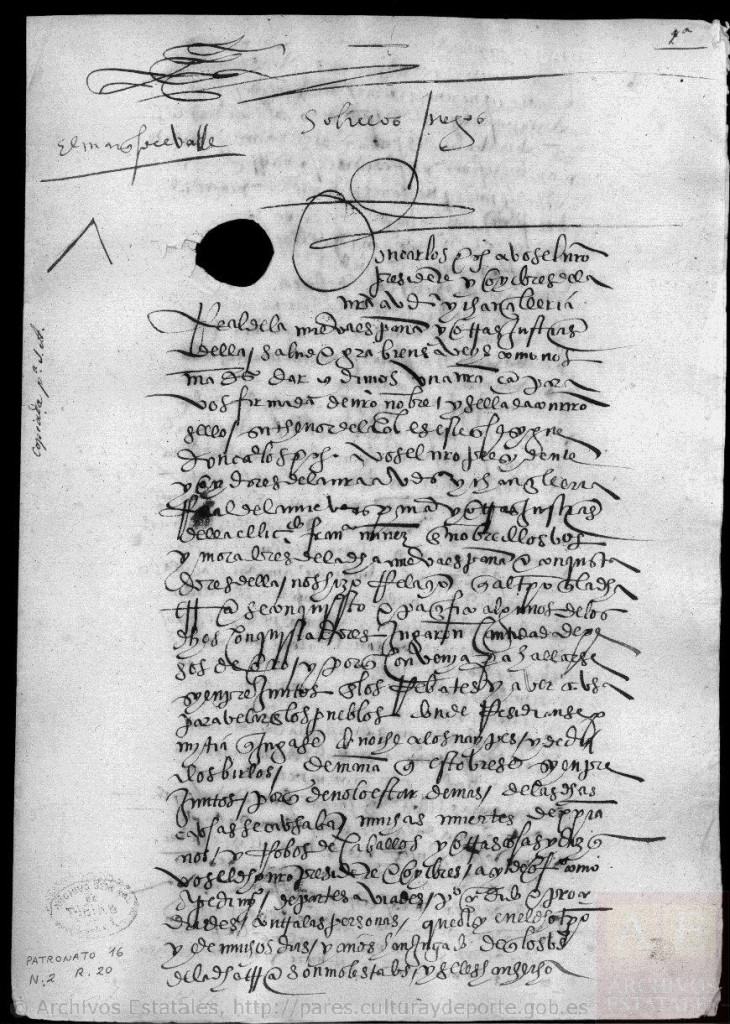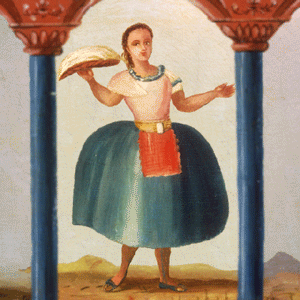The contract Hernán Cortés signed with Diego Velázquez explicitly prohibited any member of the expedition to play cards or shoot dice. When the second audiencia or high court arrived in Mexico in 1529 to investigate Cortés, the judges slapped conquistadors with accumulated fines worth tens of thousands of gold pesos for eight years of unregulated gambling. Cortés alone was forced to cough up 12,000 gold pesos (the price of 300 slaves). In 1530, the empress, Isabella of Portugal, regent of Spain, ordered the treasury to return all the fines taken from the conquistadors. The Council of the Indies had argued that the conquistadors gambled to remain together when surrounded by enemy Indians. Playing cards, the cedula or royal certificate ruled, helped the conquistadors maintain tight defence infantry lines.
Royal certificate restoring Card Gambling Fines of Hernan Cortes
Royal certificate restoring 12,000 gold pesos to Hernán Cortés for fines paid relative to card playing. Marzo 11 1530-AGI PATRONATO,16, N. 2, R. 20–1 (public domain).
Jorge Cañizares-Esguerra
Further reading
- Cashner, A.A. (2014) ‘Playing cards at the eucharistic table: Music, theology, and society in a Corpus Christi Villancico from colonial Mexico, 1628’, Journal of Early Modern History, 18: 383–419.
- de Covarrubias, P. (1543) Remedio de jugadores (Barcelona).
- Fajardo, F.L. (1603) Fiel Desengaño contra la ociosidad y los juegos: utilisisimo a los confesores, penitentes y justicias y demás a cuyo cargo está limpiar de vagabundos, tahúres y fulleros la Republica Cristiana (Madrid).





